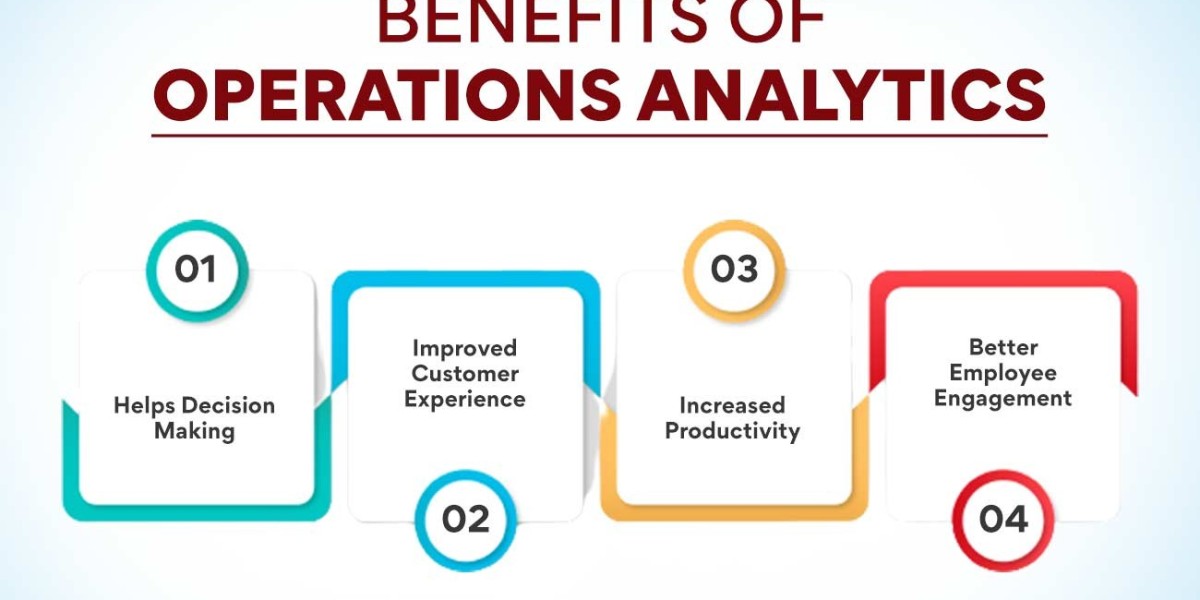Introduction to Operational Analytics
Operational analytics is the practice of using data analysis to monitor, improve, and optimize daily business operations. Unlike traditional analytics that focuses on historical data, operational analytics provides real-time insights, enabling businesses to make quick, informed decisions. This approach integrates seamlessly into workflows, empowering organizations to enhance performance, minimize inefficiencies, and respond swiftly to changing circumstances.
Key Benefits of Operational Analytics
Operational analytics transforms raw data into actionable insights, driving significant advantages. It helps streamline processes, reducing downtime and operational costs. Businesses can predict equipment failures before they occur, optimize supply chain management, and improve customer experiences by responding faster to demands. Moreover, it enables continuous performance monitoring, ensuring consistent improvements across various departments. Ultimately, this leads to smarter resource allocation, increased productivity, and sustained profitability.
How Operational Analytics Works
The core of operational analytics lies in collecting real-time data from multiple sources — including sensors, business systems, and customer interactions — and processing it through advanced algorithms. This data is visualized via intuitive dashboards, allowing stakeholders to track performance metrics instantly. Machine learning models can further enhance these insights by identifying patterns and predicting future outcomes, enabling proactive decision-making.
Real-World Applications of Operational Analytics
Operational analytics is widely adopted across industries. In manufacturing, it helps monitor machinery performance, preventing breakdowns and ensuring optimal production. Retailers use it to manage inventory, predict demand, and personalize customer experiences. In logistics, it optimizes delivery routes and tracks fleet performance. Meanwhile, healthcare facilities leverage it to streamline patient workflows, reduce waiting times, and improve care quality. Each industry benefits from faster, more effective decision-making driven by real-time insights.
Implementing Operational Analytics in Your Business
To successfully integrate operational analytics, businesses should start by defining key performance indicators (KPIs) and identifying data sources. Investing in the right analytics platform is crucial — one that offers real-time data processing, visualization, and predictive capabilities. Additionally, fostering a data-driven culture within the organization ensures that insights are acted upon effectively. Continuous evaluation and adaptation further refine processes, driving long-term success.
The Future of Operational Analytics
The future of operational analytics looks promising, with advancements in artificial intelligence, machine learning, and IoT (Internet of Things) expanding its capabilities. Predictive and prescriptive analytics will become more sophisticated, enabling businesses to anticipate challenges and seize opportunities faster than ever before. Furthermore, enhanced data security measures will ensure sensitive information remains protected, fostering greater trust in analytics-driven decision-making.
Read More - https://www.marketresearchfuture.com/reports/operational-analytics-market-1887
Conclusion: Empowering Businesses with Operational Analytics
Operational analytics is no longer a luxury but a necessity for businesses seeking to stay competitive. By leveraging real-time data, companies can optimize operations, improve customer experiences, and drive continuous growth. As technology evolves, the potential of operational analytics will only expand, making it an essential tool for future-ready businesses. Embracing this data-driven approach ensures agility, efficiency, and sustained success in an ever-changing marketplace.








